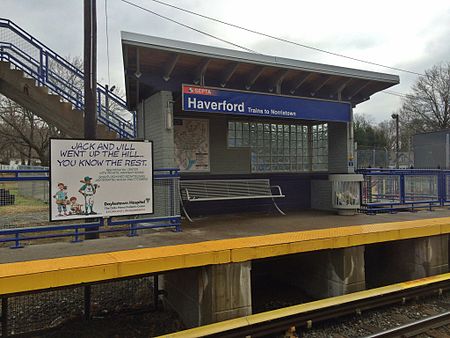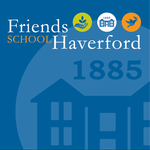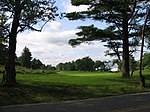Haverford station (Norristown High Speed Line)
Pages with no open date in Infobox stationPennsylvania railway station stubsSEPTA Norristown High Speed Line stationsSEPTA stubs

Haverford station is a SEPTA rapid transit station in Haverford Township, Pennsylvania. It serves the Norristown High Speed Line (Route 100) and is located at Haverford Road and Buck Lane. Local and express (but not limited) trains stop at Haverford. The station lies near the campus of Haverford College and the Haverford School. The station lies 4.5 track miles from 69th Street Terminal. The station has off-street parking available.
Excerpt from the Wikipedia article Haverford station (Norristown High Speed Line) (License: CC BY-SA 3.0, Authors, Images).Haverford station (Norristown High Speed Line)
East Haverford Road, Haverford Township
Geographical coordinates (GPS) Address Nearby Places Show on map
Geographical coordinates (GPS)
| Latitude | Longitude |
|---|---|
| N 40.01 ° | E -75.3152 ° |
Address
Haverford
East Haverford Road
19041 Haverford Township
Pennsylvania, United States
Open on Google Maps



